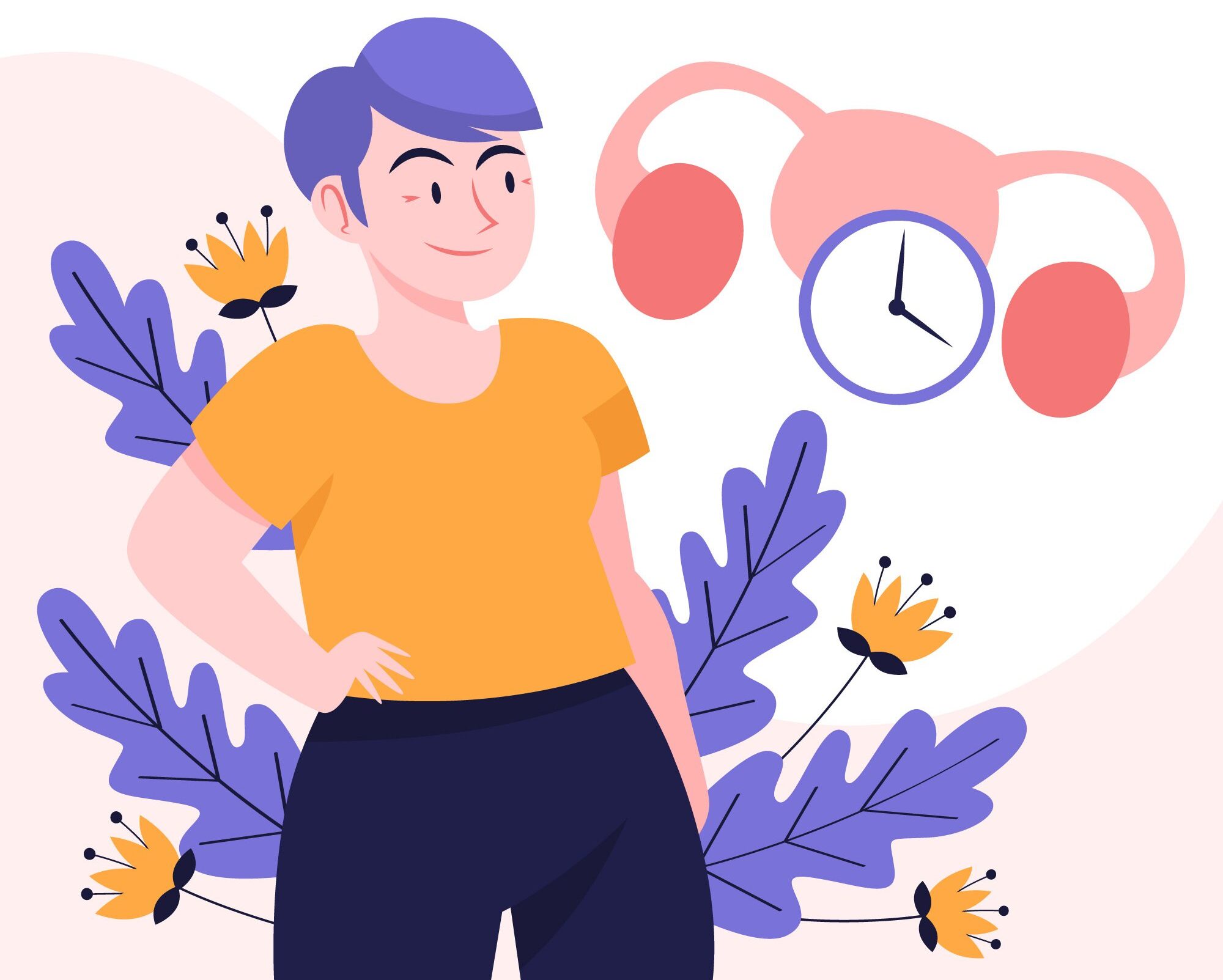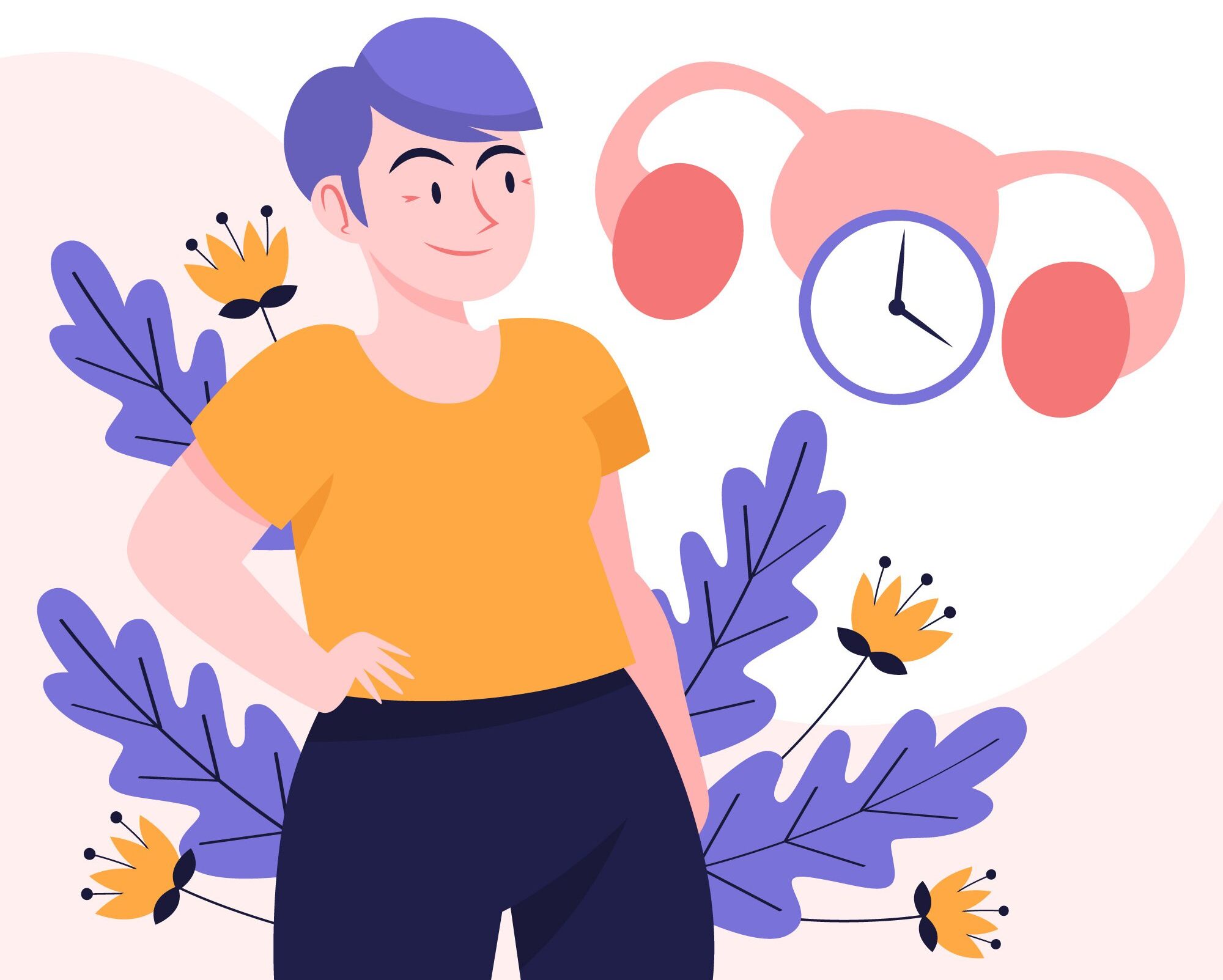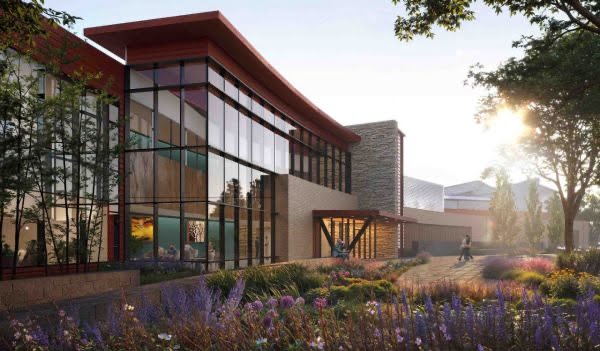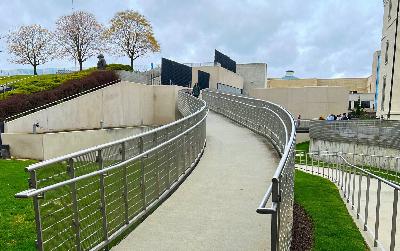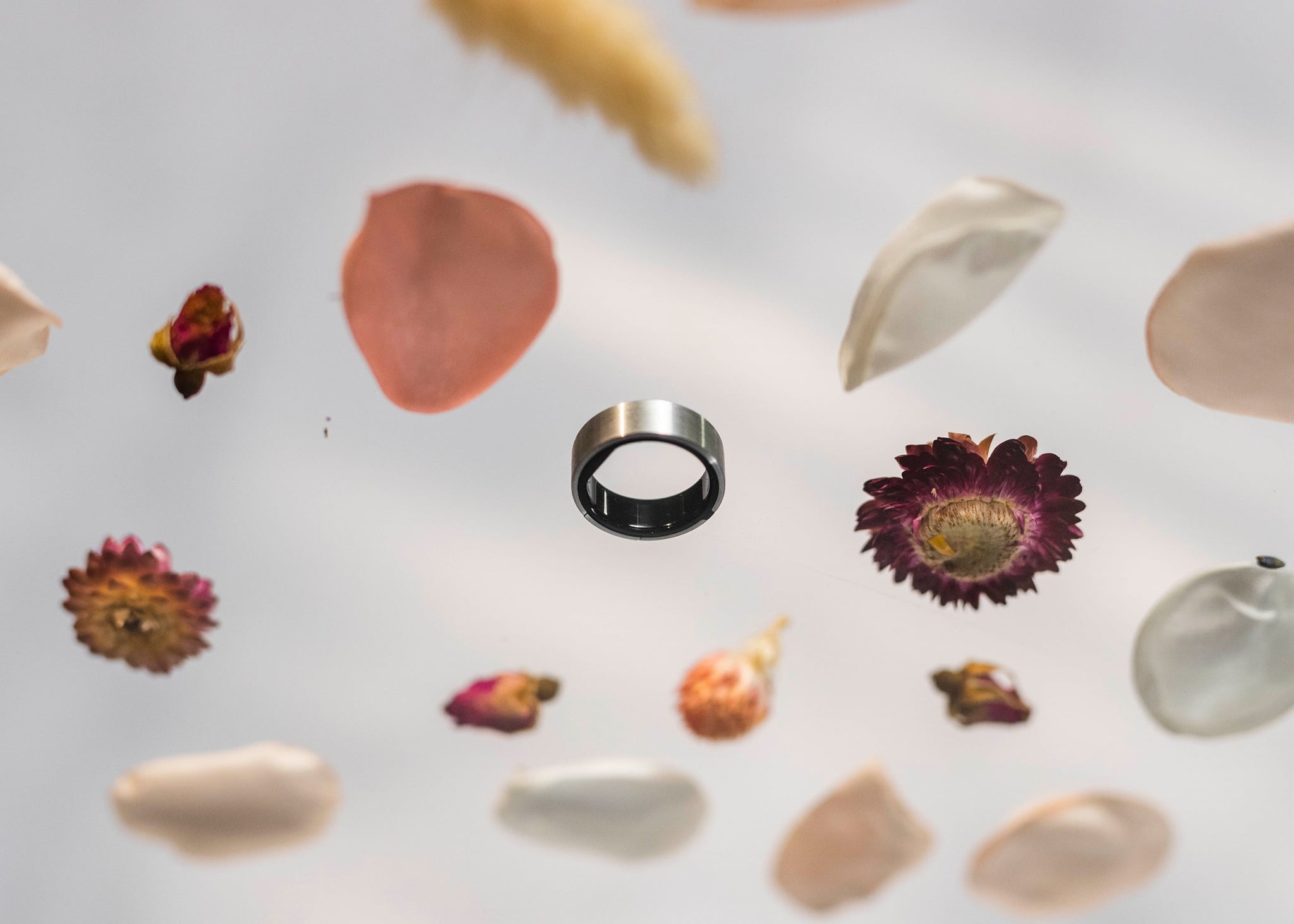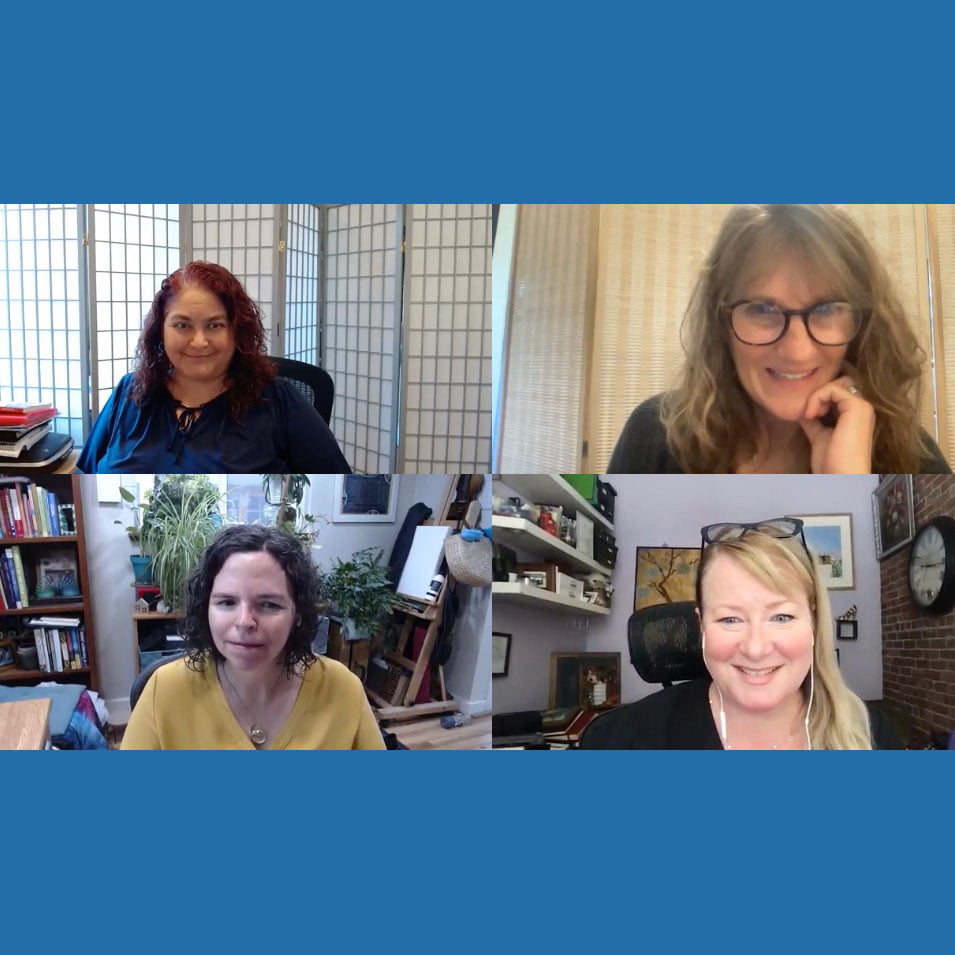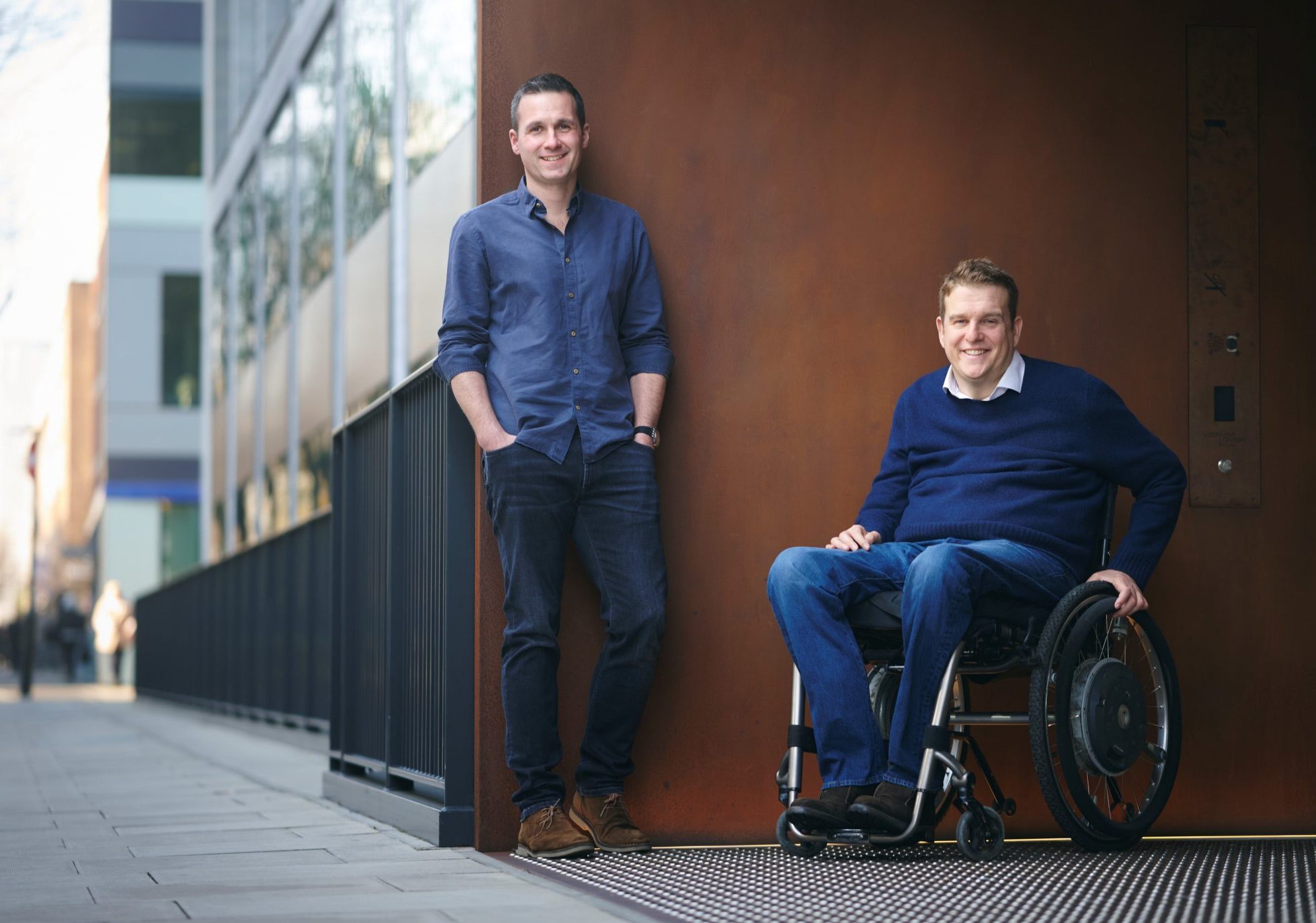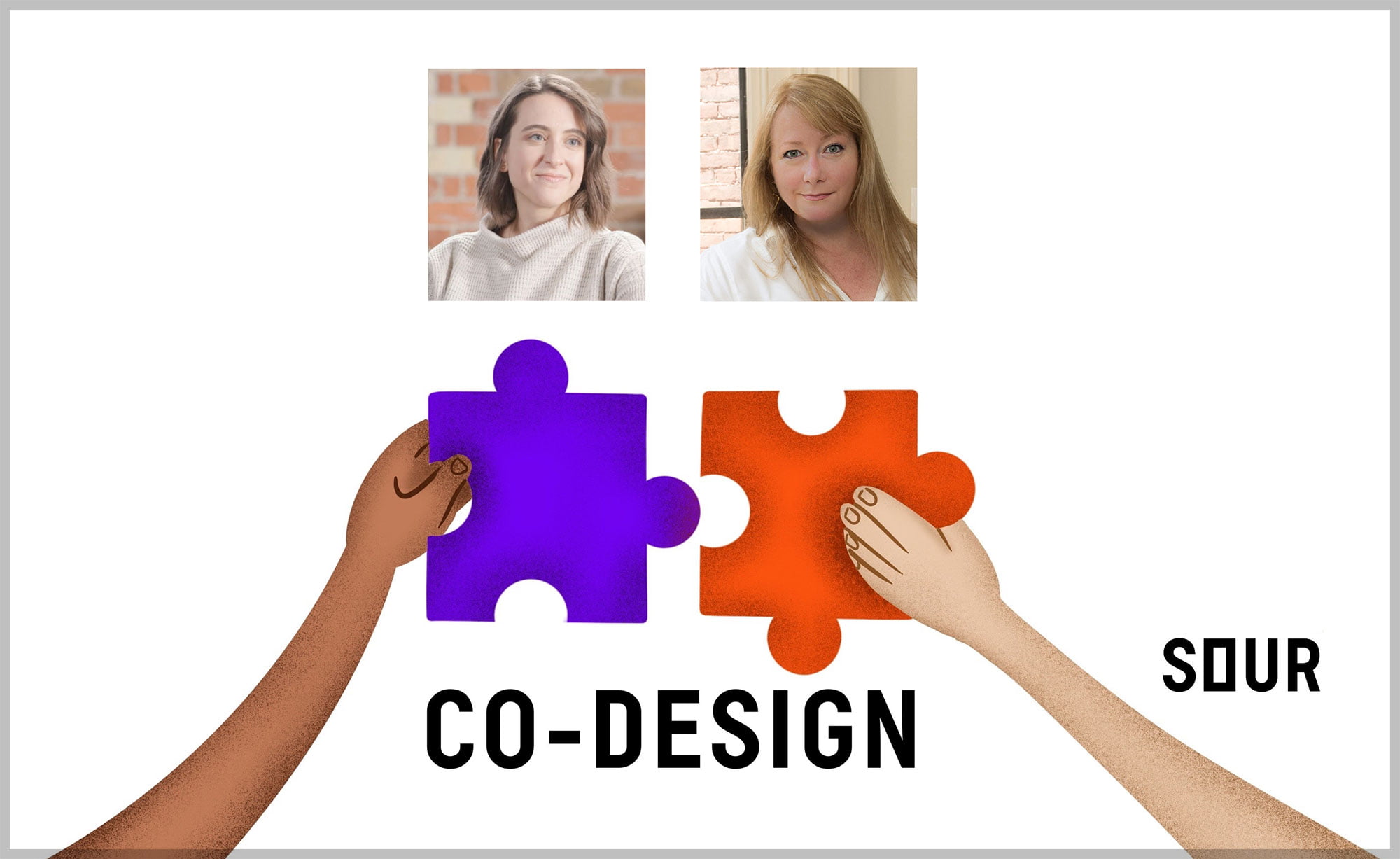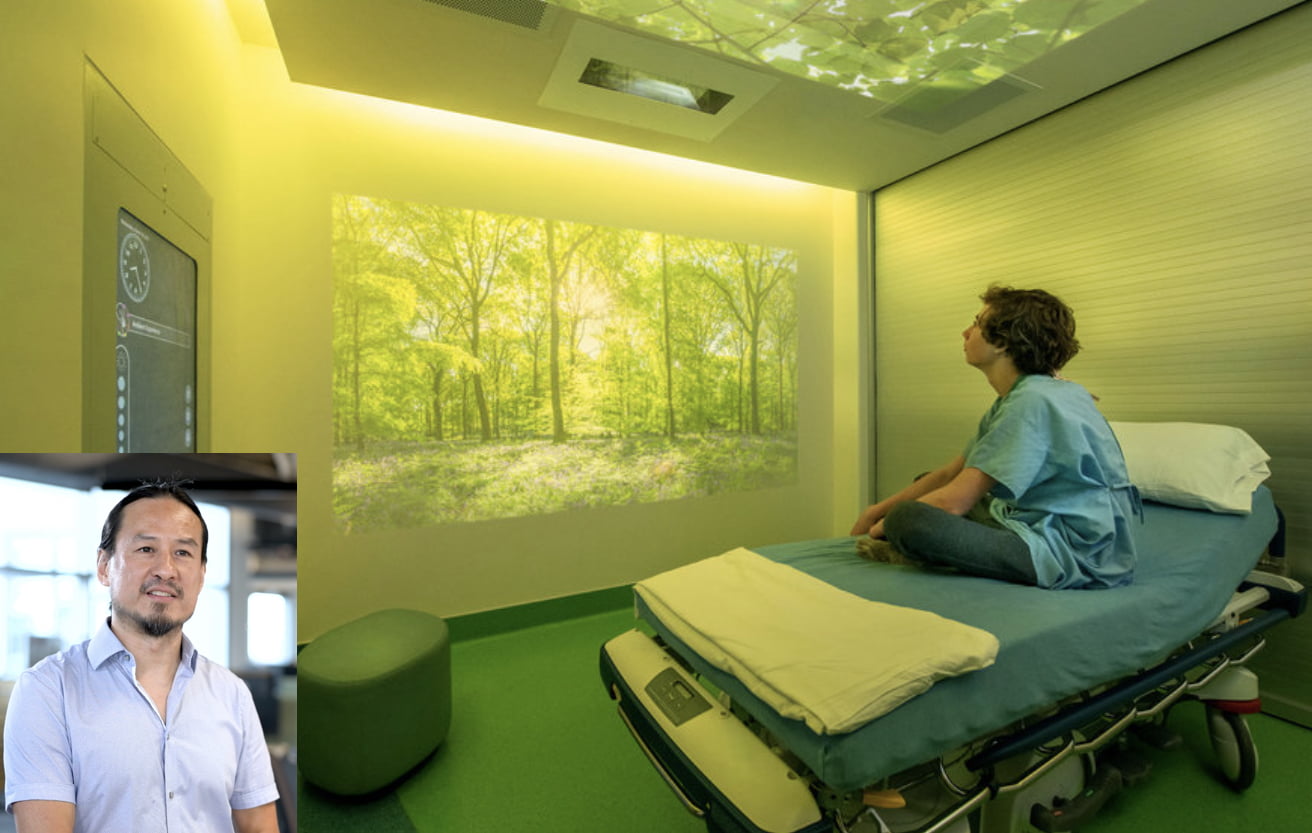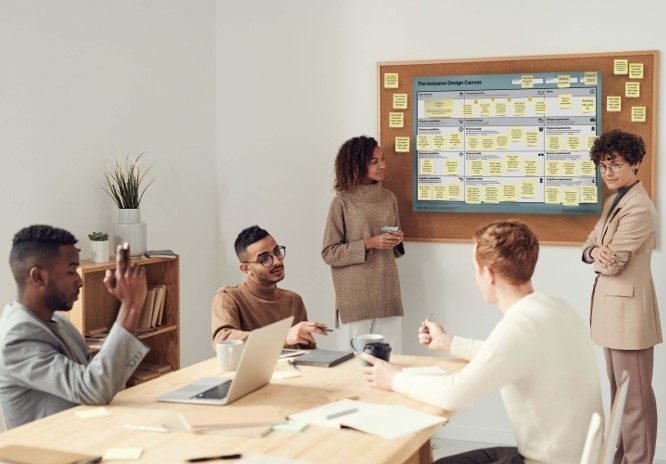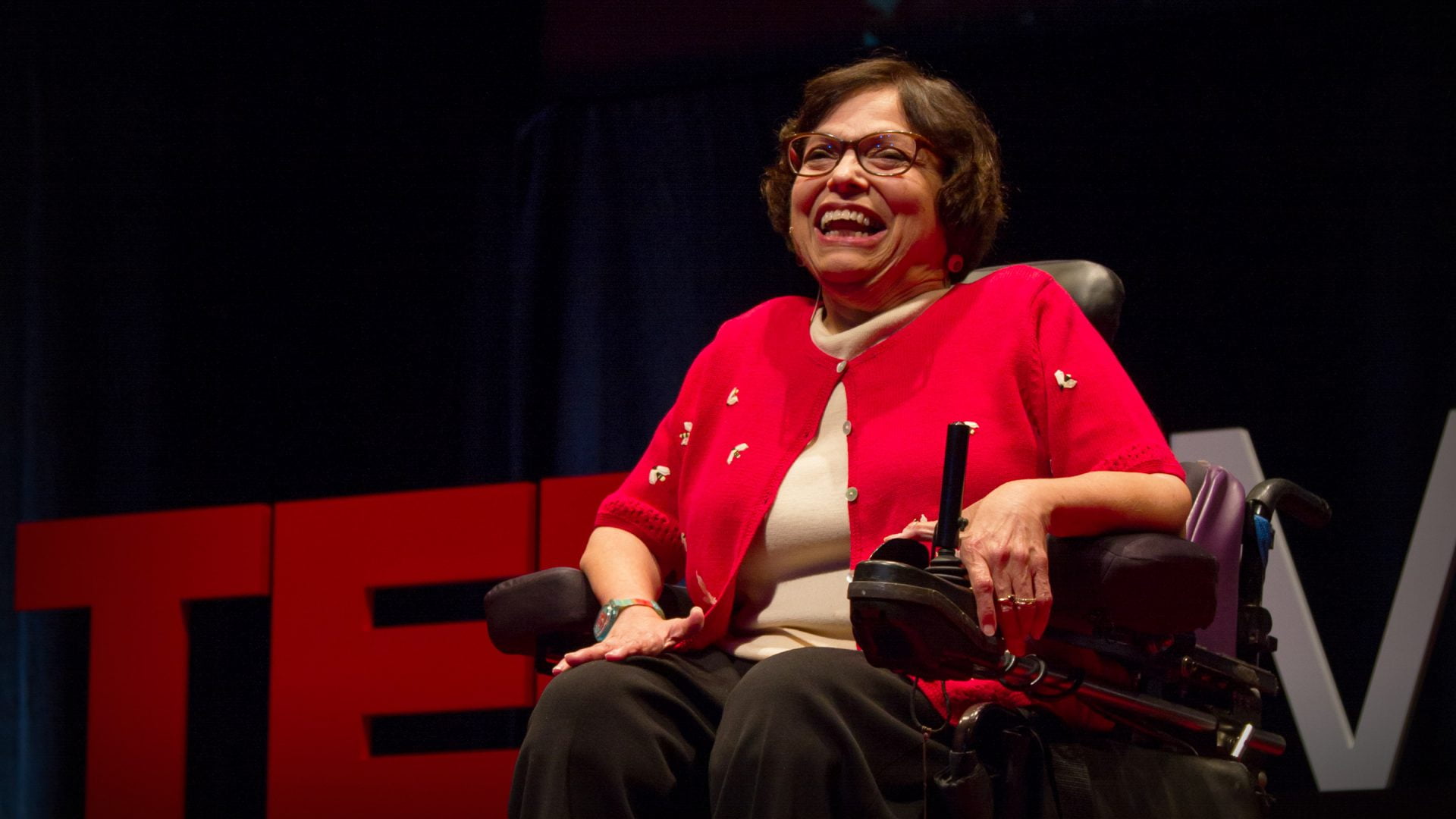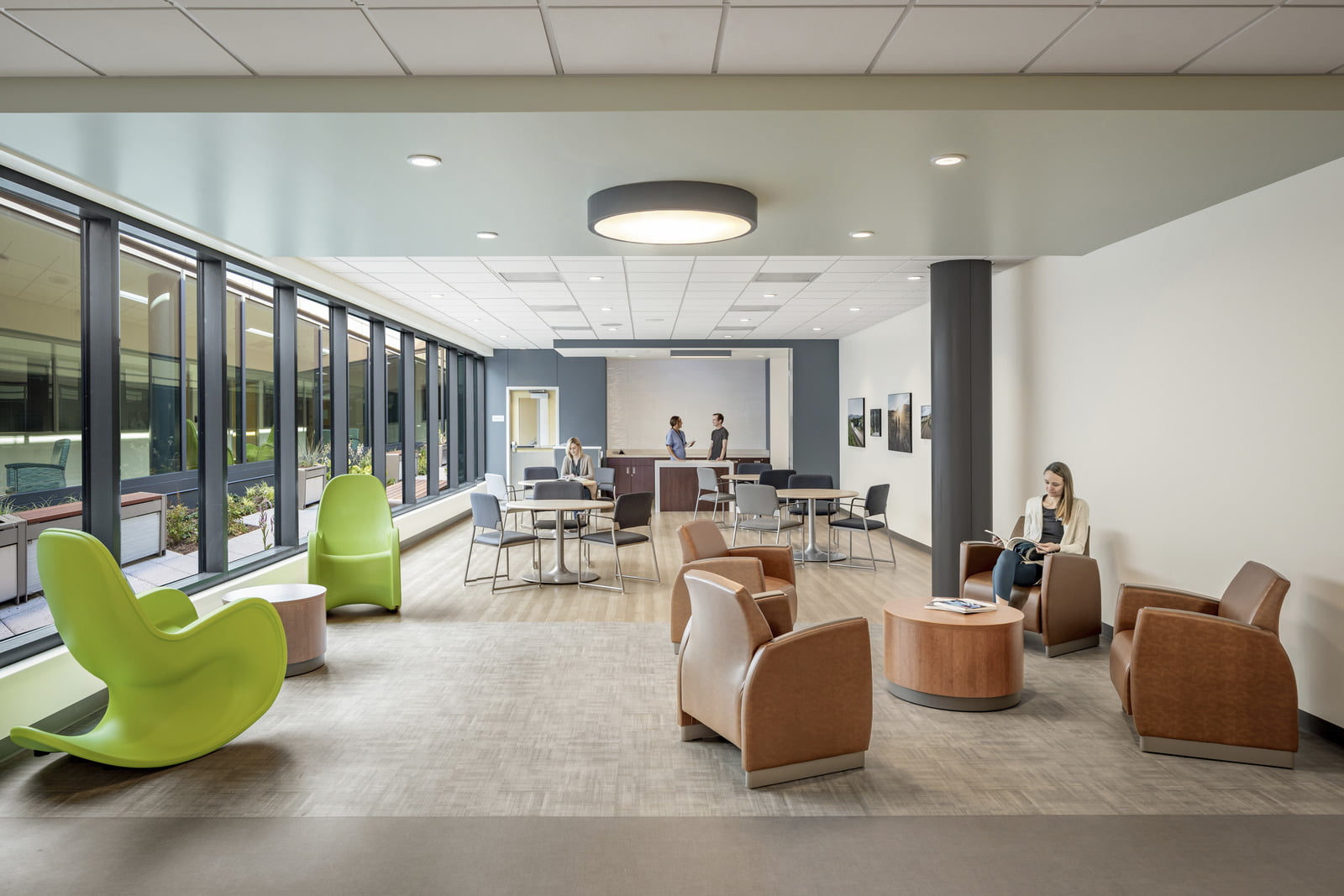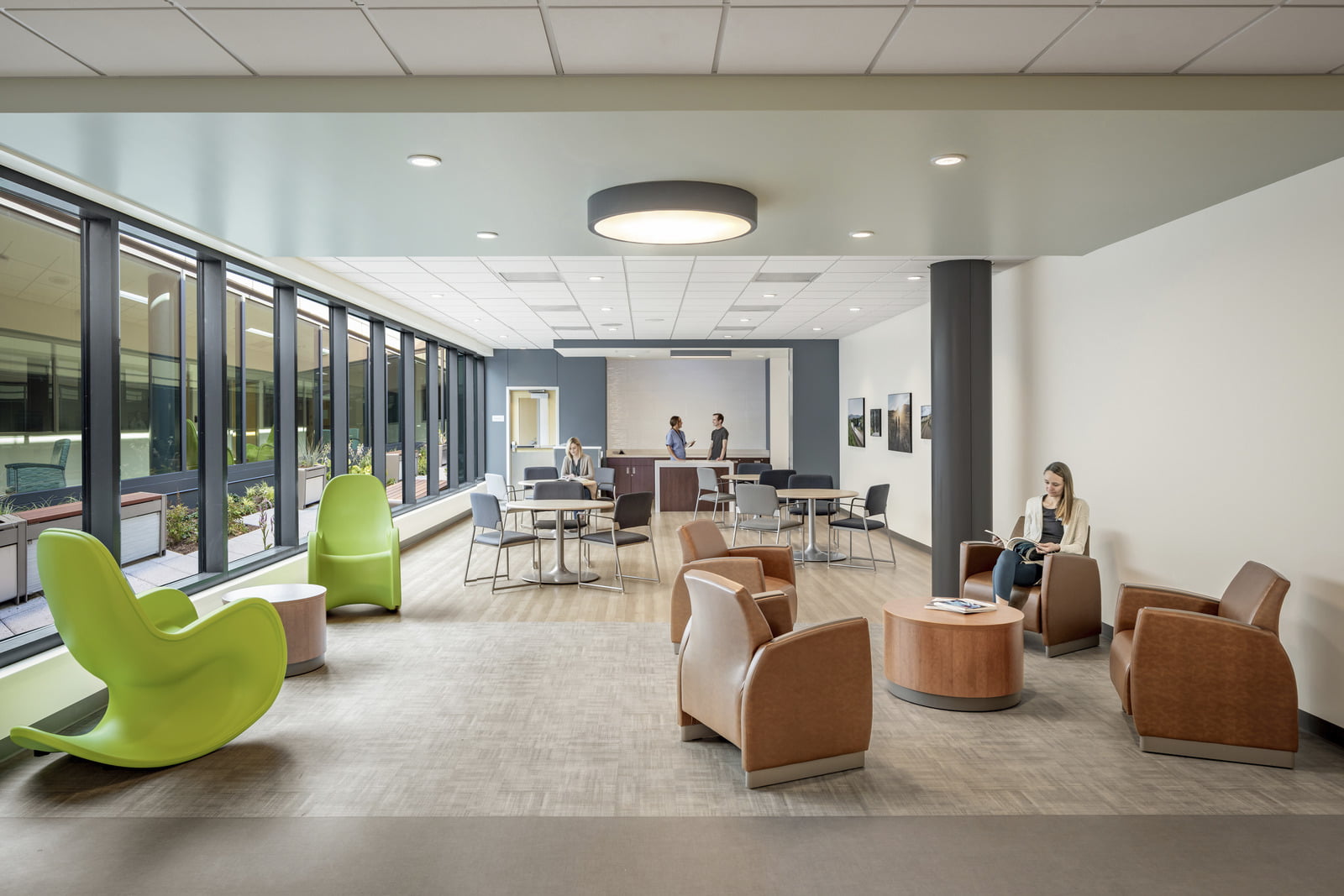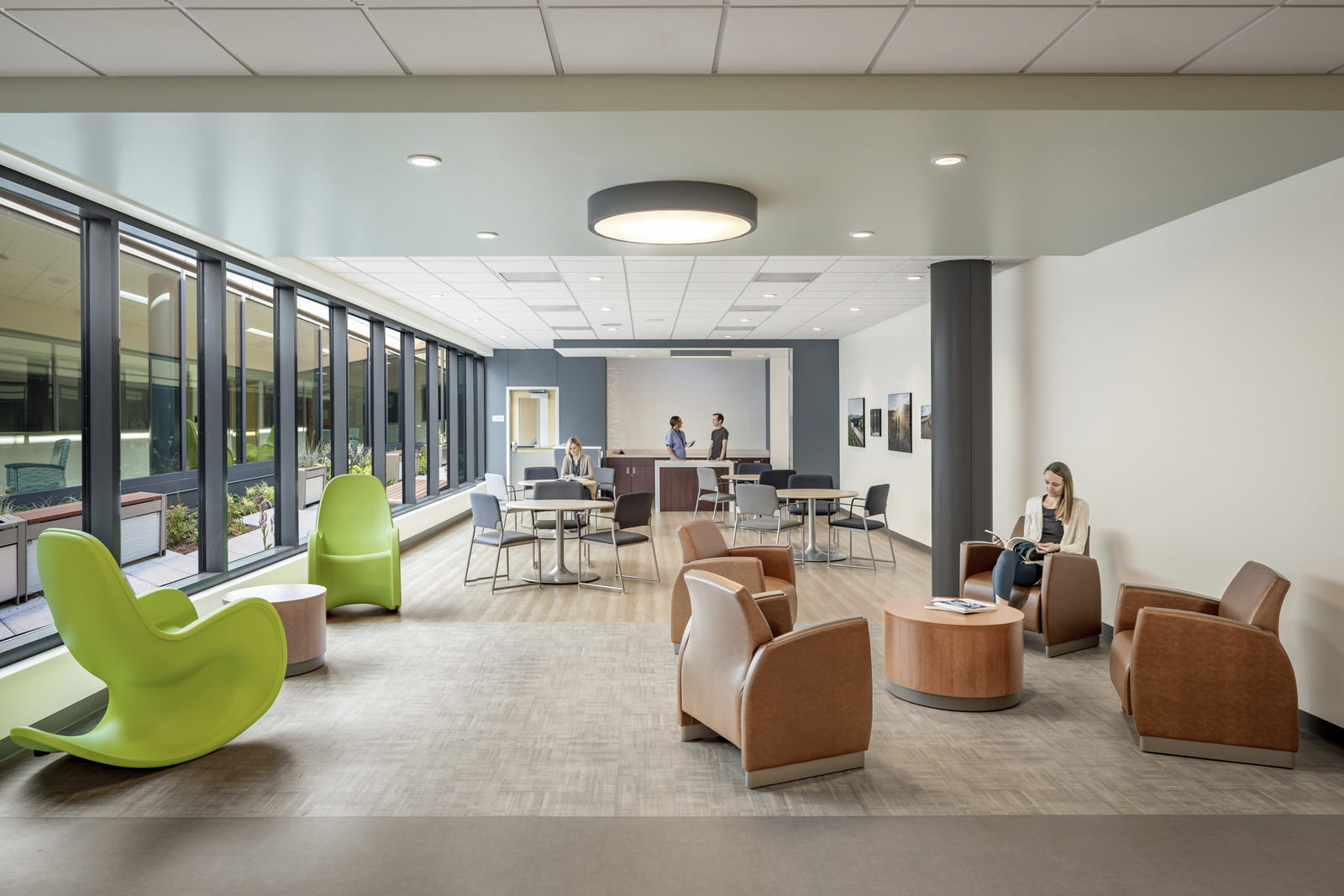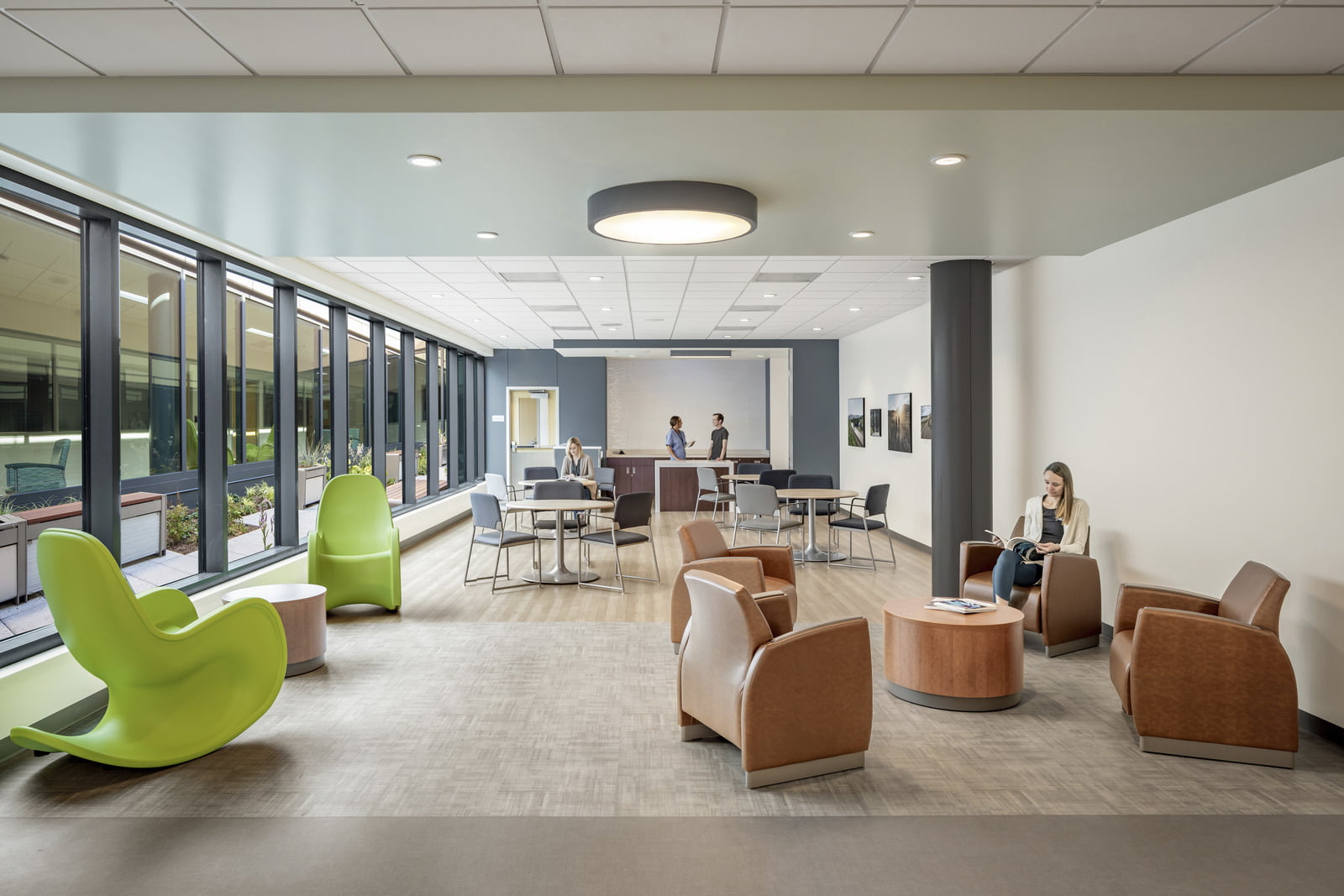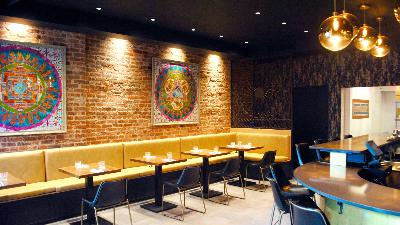Discover Inclusive Designers Podcast
Inclusive Designers Podcast

Inclusive Designers Podcast
Author: Inclusive Designers Podcast
Subscribed: 11Played: 174Subscribe
Share
© Inclusive Designers Podcast
Description
In the relatively new and constantly evolving field of designing for human health, there is a need for access to the most current information and resources. This Podcast provides a forum for Inclusive Designers to exchange ideas, discuss design considerations, and share solutions for the challenges they face in creating healthy environments for people living with certain human conditions.
Fact: 1-in-4 Americans have some sort of “disability” … these can include issues associated with Aging; Alzheimers; Attention Deficit Disorder (ADD); Autism; brain injuries; cognitive disabilities; paraplegia; PTSD; and visual acuity, to name just a few.
This series looks at the biological aspects of both home and office environments to discover ways to make them healthier using methods such as movement, biophilia, sound, and lighting. It tackles topics such as universal design; health and design for the homeless; and city living. In addition, it addresses matters of environmental overall health, such as the dangers of furniture off gassing; resins; and electric magnetic fields (EMFs).
The aim of this podcast is to fill the gap among designers who create environments for health and well-being, and to establish a collaborative forum for discussing these ideas. And when appropriate, some episodes may even include a little fun.
Fact: 1-in-4 Americans have some sort of “disability” … these can include issues associated with Aging; Alzheimers; Attention Deficit Disorder (ADD); Autism; brain injuries; cognitive disabilities; paraplegia; PTSD; and visual acuity, to name just a few.
This series looks at the biological aspects of both home and office environments to discover ways to make them healthier using methods such as movement, biophilia, sound, and lighting. It tackles topics such as universal design; health and design for the homeless; and city living. In addition, it addresses matters of environmental overall health, such as the dangers of furniture off gassing; resins; and electric magnetic fields (EMFs).
The aim of this podcast is to fill the gap among designers who create environments for health and well-being, and to establish a collaborative forum for discussing these ideas. And when appropriate, some episodes may even include a little fun.
28 Episodes
Reverse
By: Janet Roche & Carolyn Robbins Hosted By: Janet Roche Edited By: Cedric Wilson Guest: G Cody QJ Goldberg- Chief Play Officer, Harper’s Playground Photo Credits: Harper’s Playground Designing for: Inclusive Playgrounds… Keeping the Fun in Function (Season 6, Episode 3) How do you create playgrounds that are both fun and functional? Join Inclusive Designers Podcast as G Cody QJ Goldberg- Chief Play Officer of Harper’s Playground- spills the dirt on how to design spaces where every body can play. Guest: G Cody QJ Goldberg- is the Chief Play Officer of Harper’s Playground, a non-profit committed to creating opportunities that […]
By: Janet Roche & Carolyn Robbins Hosted By: Janet Roche Edited By: Jessica Hunt Guest: Donald Strum, President of MGD Photo Credit: Michael Graves Design Functional + Accessible + Beautiful = Michael Graves Design (Season 6, Episode 2) The need for accessible home design is growing, and one company is leading the way! Michael Graves Design is proving that thoughtful, beautiful design can really make a difference! Guest: Donald Strum- is the President of Michael Graves Design. He shares the personal reasons the company changed it’s focus to accessible design, and what it took to land their collaborations with Stryker, […]
By: Janet Roche & Carolyn Robbins Hosted By: Janet Roche Edited by: Jessica Hunt Photo Credit: Freepik.com Designing for Bespoke Bodies: IDP Goes to The Bionic Race (Season 6, Episode 1b) Come along with us to the Bionic Race! This event brings together not only adaptive athletes, but everyone who loves to the joy of running! We briefly touched upon the race within this discussion of ‘Designing for Bespoke Bodies: Bionic Prosthetics & Beyond’ and decided it deserved a separate ‘more to the story’ episode of its own! Janet and Carolyn attended the race in Cambridge MA where they spoke […]
By: Janet Roche & Carolyn Robbins Hosted By: Janet Roche Edited by: Jessica Hunt Panel Guests: Dana Ross Rogers & Will Borden- The Bionic Project Molly Jarman- The Stepping Strong Center Maria Villafranca- CoDesign Collaborative Photo Credit: Freepik.com Designing for Bespoke Bodies: Bionic Prosthetics & Beyond (Season 6, Episode 1) Traumatic injury is one of the most under-recognized— yet pervasive— medical challenges in the nation. But now, there are exciting new breakthroughs in Bionic Technology for bespoke bodies, and more accessible environments being designed for everyone. In this episode of Inclusive Designers Podcast, our panel of experts explores the latest […]
By: Janet Roche & Carolyn Robbins
Hosted By: Janet Roche
Edited by: Jessica Hunt
Guests: Lisa Scully; Nathalie Bonafe; Erika Eitland
Stock Image: Designed by Freepik
Design + Menopause
(Season 5, Episode 5a)
Menopause is no longer a taboo topic! Join ‘Inclusive Designers Podcast’ in a special episode on ‘Design + Menopause’ that breaks the silence on what menopause is, how it impacts women in the workplace, and what designers can do to create supportive environments!
Our expert panel includes: Menopause Educator Lisa Scully, Women’s Health Advocate Dr. Nathalie Bonafe, and Dr. Erika Eitland from Perkins&Will. Together, we discuss the stages of menopause and offer actionable design solutions.
Through personal stories and professional insights, our guests provide valuable perspectives on fostering a workplace that supports women through every stage of menopause. Tune in for a conversation that’s both informative and empowering.
Panel:
Lisa Scully– is an official Brand Licensed partner with the award-winning ‘Menopause Experts Group’ (MEG). She provides organizations and individuals with up-to-date scientifically based and medically backed information. She is also the Civic Mission Project Manager at Wrexham University,
Quote: “My mission is to demystify menopause, providing support, guidance, and evidence-based information to individuals experiencing this phase of life.”
Nathalie Bonefe, PhD – is a molecular biologist with 25 years of biomedical research experience, who now advocates for women’s health from midlife on. In her private practice, she educates and coaches women through peri-menopause, menopause, and beyond.
Quote: “Menopause is a transition, not a disease, and post-menopause lasts for the rest of a woman’s life!”
Erika Eitland, ScD, MPH – is a Public Health Scientist and the Co-Director of the Human Experience Lab at Perkins&Will. She received a doctorate in Environmental Healthfrom the Harvard Chan School of Public Health and a Master of Public Health in Climate and Health from Columbia University.
Quote: “… the more we talk about it, we de-stigmatize it. The more we talk about it, we acknowledge that this is a lived experience that every single woman goes through for a huge part of their life.”
Note:
Menopause Cafes– can be a great resource for those suffering with symptoms! We briefly touched upon their existence in this discussion and felt it was important enough to create a separate episode where we share more on what they can do, and how to find one if you or someone you know needs help or support going through these life stages.
– Definitions:
– Menopause Stages: Perimenopause; Menopause; Postmenopause
– Symptoms of Menopause may include: Depression; Anxiety; Panic Attacks; Brain fog; Hot Flashes; Night Sweats; Anger/Mood Swings
– References:
Menopause Cafe Connecticut
By: Janet Roche & Carolyn Robbins
Hosted By: Janet Roche
Edited by: Jessica Hunt
Guests: Lisa Scully; Nathalie Bonafe
Stock Image: Designed by Freepik
Menopause Cafes
(Season 5, Episode 5b)
Do you think it’s taboo to talk about Menopause? Guess again!
In our Inclusive Designers Podcast “Design + Menopause” episode, our experts introduced us to a unique and vital concept: Menopause Cafes. These gatherings provide safe, brave spaces for individuals to share their experiences with menopause, free from judgment and stigma.
Menopause Educator Lisa Scully and Women’s Health Advocate Dr. Nathalie Bonafe know first-hand the global reach and impact of these cafes since they facilitate them both in person and online. They share their insight of how these can empower women to connect, learn, and find community during these significant life stages.
IDP is excited to share that there are now spaces like Menopause Cafes that focus on breaking the silence and taboos around menopause, and provide a way to foster open dialogue for women in need of support.
Interested in learning more about how design can influence and support the menopause journey? Check out our other episode on Design + Menopause.
Panel:
Lisa Scully– is an official Brand Licensed partner with the award-winning ‘Menopause Experts Group’ (MEG). She provides organizations and individuals with up-to-date scientifically based and medically backed information. She is also the Civic Mission Project Manager at Wrexham University,
Quote: “My mission is to demystify menopause, providing support, guidance, and evidence-based information to individuals experiencing this phase of life.”
Nathalie Bonefe, PhD – is a molecular biologist with 25 years of biomedical research experience, who now advocates for women’s health from midlife on. In her private practice, she educates and coaches women through peri-menopause, menopause, and beyond.
Quote: “Menopause is a transition, not a disease, and post-menopause lasts for the rest of a woman’s life!”
– Definitions:
– Menopause stages: Perimenopause; Menopause; Postmenopause
– Symptoms of Menopause may include: Depression; Anxiety; Panic Attacks; Brain fog; Hot Flashes; Night Sweats; Anger/Mood Swings
– References:
Menopause Cafe Connecticut
Menopause Experts Group
Perkins&Will
Trauma Informed Design Society
Understanding Menopause Booklet
Understanding Symptoms Poster
Menopau...
By: Janet Roche & Carolyn Robbins
Hosted By: Janet Roche
Edited by: Jessica Hunt
Guests: Stephen Parker & Robyn Linstrom
Photo Credit: Stantec
Designing for: Crisis Centers (Season 5, Episode 4)
Inclusive Designers Podcast: Currently, there’s a significant rise in people with mental health issues. But the current system often sends a person in crisis to an already overloaded emergency department. Creating separate Crisis Stabilization Centers can play a key role in addressing the need for better mental health care treatment.
But just what do you need to know to design an effective facility that both reduces the stigma, and takes evidence-based research into consideration?
Guests Stephen Parker & Robyn Linstrom share their very knowledgeable views on the specific challenges designers may face. Spoiler alert, the best solutions use Trauma-informed Design principles!
Guests:
Stephen Parker (AIA NOMA NCARB LEED AP) – is a dedicated Behavioral and Mental Health Planner. Stephen is a proponent of “architect as advocate” for colleague, client, and community alike. Advocating by design for humanity at its most vulnerable, elevating communities in crisis, and serving those that suffer in silence.
His projects range from community-scale recovery centers to expansive mental health campuses— using dignity-driven design research for communities in crisis— with work ranging from China, India, Kenya and across the US & Canada.
Quotes: “Trauma-informed Design principles really are a key factor in informing those very community specific needs to avoid coercion and help individuals in crisis in a humane and safe way”
“We strive really hard to design for dignity. We balance and harmonize the evidentiary with the empathetic, and really championing that lived experience, talking to those individuals in crisis, the family members that have endured it with them, and not make assumptions”
“Every design decision will help or hinder an individual in crisis. And we have a responsibility as designers to do better”
– Contact: Stephen Parker, Stantec
Robyn Linstrom (AIA, EDAC, LEED AP) – is a healthcare architect and senior associate at Stantec, with a passion for behavioral health and designing for healing environments. She believes that the built environment can be a partner in supporting healing.
According to her bio, Robyn is focused on changing design from the institutional to a more therapeutic environment. This challenge drives the work she does. Her goal as a behavioral health specialist is to de-stigmatize psychiatric facilities— with design that provides an environment of hope, dignity, and support.
Quotes: “It’s about creating this environment that allows people in crisis to come in and accept treatment to get out of that crisis that they’re in.
“I want to help reduce stigma. I want to be part of that solution that we could all find ourselves in a situation of needing help at any time”
“It’s really nice to see the gaps being bridged in peer support and all of the different things that we’ve been working on as advocacy is making it into the design world”
“My biggest hope working on these types of facilities is to make this a conversation. Let’s design places that are healing and support people”
– Contact: Ro...
By: Janet Roche & Carolyn Robbins
Hosted By: Janet Roche
Edited by: Jessica Hunt
Guests: Meg O’Connell & Steve Wright
Photo Credit: Steve Wright
The Ins and Outs of Urban Design (Season 5, Episode 3)
Inclusive Designers Podcast: What are the best practices for Urban Design? Whether it’s getting around in our cities and streets, or within the buildings where we work, IDP explores the barriers that exist every day in terms of accessibility!
Guests Meg O’Connell and Steve Wright share their views on urban design for disabilities in the workplace and beyond. Plus how to create spaces that work for everybody- without special considerations or accommodations- because they’re already built into the environment. And pet peeves? Yes, they share them too!
Guests:
Meg O’Connell – is the founder and CEO of ‘Global Disability Inclusion’. She is an award-winning disability inclusion expert who provides strategic direction, design, and implementation of disability employment and inclusion programs. Her clients include Global 500 companies, plus foundations, universities, and nonprofits.
Meg is also involved in disability employee research. She co-authored ‘The State of Disability Employee Engagement’ to help companies understand the workplace experiences of their employees with disabilities.
Meg on Accessibility- “It’s not a facilities issue. Not a building issue. Not an maintenance issue. Everyone has a responsibility to it”
– Contact (LinkedIn): Meg O’Connell
Steve Wright – is a educator, communicator, and award-winning journalist who is an advocate for positive change. He has presented on design issues and solutions at national conferences, and advises clients on diversity, equity, inclusion, and accessibility. As a storyteller, he creates content for major non-profits and corporations.
Steve believes in creating a better built environment with a focus on inclusion, dignity, and non-segregating design for people with disabilities.
Steve on Design- “The COVID pandemic has proven that the way we build and plan must be safe, accessible and inclusive for all.”
– Contact (LinkedIn): Steve Wright
– References:
Global Disability Inclusion
IDP Discusses ‘Design Crimes’ with Ed Warner, Motionspot
MotionSpot – Accessible Hotel Design
Hotel Brooklyn, Manchester UK
Ponte Guilio
Trauma-informed Design Society
The Boston Architectural College
Universal vs Inclusive Design
WELL AP
Green Build – LEED
Michael Graves, Architects
Patricia Belmont/ Belmont Village
By: Janet Roche & Carolyn Robbins
Hosted By: Janet Roche
Edited by: Jessica Hunt
Guest: Dhaval Patel, Lotus Labs
Photo Credit: Lotus Labs
Inclusive Designers Podcast:
Accessibility is often an afterthought in product design. Even tech with the potential to be game-changing for folks with disabilities, often isn’t designed with them in mind. Is a hybrid of Inclusive, Universal and Human-centered Design the key to solving this problem?
IDP explores how to improve the design process with Dhaval Patel of Lotus Labs. We’ll hear about their innovative ‘Lotus Ring’ that aims to prove this theory and serve as an example that the process really can work!
Guest: Dhaval Patel- is the founder and CEO of Lotus, a company whose mission is to build technology that is useful to everyone, by optimizing for disability first. To that end, Lotus has built a wearable Ring that controls objects at home by pointing.
Formerly, Dhaval was a division leader at Apple, working in their iPhone, Apple Watch & AirPod divisions. He has 37 patents in sensing & haptics. His work at Apple inspired him to build technology that helps everyone, but could be especially life changing for disabled persons, seniors, and veterans.
“Legacy. What is Legacy? It’s planting seeds in a garden you never get to see.” – Quote from ‘Hamilton: An American Musical’
– Contact: Dhaval Patel (Linked In)
– References:
Lotus Labs
Activities of Daily Living (ADLs): Activities of daily living are activities related to personal care. They include bathing or showering, dressing, getting in and out of bed or a chair, walking, using the toilet, and eating.
Universal vs Inclusive Design: Unlike inclusive design, which highlights individual differences, universal design focuses on the similarities all people share. Universal design is the practice of designing usable products that don’t require adaptations.
User Experience (UX) Design: User experience (UX) design is the process design teams use to create products that provide meaningful and relevant experiences to users. UX design involves the design of the entire process of acquiring and integrating the product, including aspects of branding, design, usability and function.
IDP Discusses ‘Design Crimes’ with Ed Warner, Motionspot
MotionSpot – Accessible Hotel Design
Hotel Brooklyn, Manchester, UK
Transcript:
Designing for: Technology & Innovation with Lotus Labs, (Season 5, Episode 2)
Guest: Dhaval Patel, Lotus Labs
(Music / Open)
Janet: In this series we will be discussing specific examples of design techniques that make a positive difference for people living with certain human conditions.
Carolyn: The more a designer understands the client and or the community the more effective and respectful the design will be.
(Music / Intro)
Janet: Welcome to Inclusive Designers Podcast...
By: Janet Roche & Carolyn Robbins
Hosted By: Janet Roche
Edited by: Jessica Hunt
Guests: J. Davis Harte, Christine Cowart, Molly Pierce
Inclusive Designers Podcast presents…
The Trauma-informed Design Society’s TiDEvalK12:
An Award-Winning TiD Tool for Designing Schools (Season 5, Episode 1)
What is the Trauma-informed Design Society’s award-winning TiDEvalK12 Tool and how can it be used to help designers and educators identify ways to make positive changes within their schools?
In this episode, IDP explores just what trauma is, and how it can affect the built environment in schools, and beyond. You’ll meet the team that created this thought-provoking tool that can bridge the gap of language and understanding to ultimately reduce stress through the built environment.
Focusing on 12 key domains, the tool can be used to evaluate schools and identify changes in the physical environment that can lower the stress levels of students and staff. It also assists designers in making pointed recommendations and helps administrators better understand the reasons these can be beneficial to their spaces.
Panel:
Davis Harte, PhD, WELL AP
Other IDP Episodes:
Trauma-informed Educational Design in a Post-Pandemic Environment
Designing for: Trauma-Informed Design
–
Christine Cowart-Trauma-informed Design Consutant
Other IDP Episode:
Trauma-informed Design: Transforming Correctional Design for Justice
–
Molly Pierce- Occuaptional Therapist
–
– References:
TiDEvalK12 Tool: (It’s FREE!)
TiDEvalK12 Report: (Also FREE!)
EDRA CORE Award
TiD Society
ASID Foundation Transforming Grant A
SAMHSA; 6 Key Principles
Patreon TiDS
Patreon IDP
Robb Elementary – Uvalde, TX New Building Design (Huckabee)
Please help fund the rebuild in Uvalde (link)
Transcript:
An Award-Winning TiD Tool for Designing Schools (Season 5, Episode 1)
Panel: Janet Roche, J. Davis Harte, Christine Cowart, Molly Pierce
...
By: Janet Roche & Carolyn Robbins
Hosted By: Janet Roche
Edited by: Andrew Parrella
Guest: Ed Warner, Motionspot
Photo Credit: Motionspot
Inclusive Designers Podcast: Ed Warner of Motionspot joins IDP to explore the need for inclusive design that is both functional and beautiful… not only in the home, but in hotels, the workplace and even for the late Queen Elizabeth’s palace! Ed shares some great examples of how Motionspot is raising the bar beyond the minimum required standards to design environments for people with a range of physical, cognitive, sensory needs— including neurodiversity. We also discuss the ‘Design Crimes’ being made and how to solve them!
Guest: Ed Warner- is co-founder of Motionspot, a global firm based in the UK that focuses on creating accessible spaces in the home, the workplace, and hotels. They also started the company ‘Fine and Able’ to take what they learned at Motionspot and use it to provide the best products for a wide range of conditions and needs.
“I’m a big believer that if you get the environment right for people,
you can really positively impact cognitive and physical health…”
Ed Warner- contact: ed@motionspot.co.uk
– References:
Motionspot
Fine & Able
The Benefits to Business of Embracing Disability- London Sunday Times
Access All Areas- including the Queens Balmoral Palace- London Sunday Times
Motionspot Brings Function & Form to Accessible Design-Metropolis Magazine
Designing Inclusive Workplaces- White paper
Designing Stylish Accessible Toilet Facilities- White paper
“Wash and Dry” Bidet Toilets
Design for the Mind- Inclusive spaces for Neurodivergent Groups
Designing Inclusive All Gender Toilets
Hotel Brooklyn, Manchester UK- Accessible facilities
Barclays- Inclusive Office Design
Missy’s House, Northamptonshire- Accessible Rental Home
Matteo Zallio- IDP Episode “Tools for Inclusion, Diversity, Equity, Accessibility”
Pinar Guvenc, Sour- IDP Episode “The Importance of Co-Design!”
Transcript:
Creating Functional Spaces & Solving Design Crimes!
Guest: Ed Warner, Motionspot
(Music / Open)
J...
By: Janet Roche & Carolyn Robbins
Hosted By: Janet Roche
Edited by: Andrew Parrella
Guest: Pinar Guvenc, SOUR Studio
Photo Credit: SOUR Studio
This in-depth interview with Pinar Guvenc of SOUR Studio explores the importance of co-design in a ‘VUCA’ (Volatile, Uncertain, Complex and Ambiguous) world, and why language matters when designing. Inclusive Designers Podcast gets Pinars’ honest opinions from whether bad design is just an ego thing, to why seemingly reasonable approaches (like active listening) are the key to GREAT design. We also learn a bit about how Janet’s bathroom reno for her father is going and the challenges she is facing to re-fit a beautiful, but not necessarily functional, space.
Guest: Pinar Guvenc- is a design strategy expert, co-design advocate & practitioner, educator, mother, frequent actionist, and forever student.
“With a co-design process, you’re 50-percent ahead of the game because the insights you’re generating are so much more meaningful and accurate for the project that you’re potentially eliminating so much cost that will come up in the back end if you don’t do it.”
Pinar Guvenc– contact: pinar@sour.studio
– References:
SOUR Studio
Open Style Lab (OSL)
OSL & SMA- ‘Double Take’ Fashion Week Show
SOUR: “Why Language Matters- A Digest on Inclusive Language”
SOUR: “A Digest on Co-design”
WPP (a Global Creative Agency)
NVIDIA Omniverse™
Time Magazine article: “Why is it not THE Ukraine?”
Coursera: “What is Active Listening?”
Book: John Silber “Architecture of the Absurd”
Architectural Digest article: This is what’s wrong with architecture today
Don Ruggles (IDP “Beauty and the Brain” Episode)
DEI (Diversity, Equity and Inclusion)
Definitions:
Co-design– is an approach in which all stakeholders, consumers and users of products or services are involved in the design process as design partners.
VUCA WORLD (Volatile, Uncertain, Complex and Ambiguous)- “We are in need of emergent practices and innovations that can address the problems of the VUCA world that we live in today. We can only achieve this by creating together with people with diverse lived experiences and professional backgrounds.” SOUR Studio.
Transcript:
Living in a ‘VUCA’ World – The Importance of Co-Design!
Guest: Pinar Guvenc,...
By: Janet Roche & Carolyn Robbins
Hosted By: Janet Roche
Edited by: Andrew Parrella
Guest: Alex Tan, Design Innovation Director, Philips
Photo Credit: Philips
How did design innovations for the NICU (Neonatal Intensive Care Unit) lead to groundbreaking changes for behavior health rooms in hospital Emergency Departments? The answer lies in new adaptive environments, and they are already making a difference to parents, staff and patients in these hospital areas.
IDP talks to Alex Tan, Design Innovation Director at Philips about the process that led to creating these immersive spaces, and spoiler alert… co-design and collaboration were a part of their success.
Guest: Alex Tan- is the Design Innovation Director at Philips. According to his own bio, he is ‘a visionary thinker and leader with a diverse background that spans across many industries and design disciplines. His leadership style is very hands-on; he leads through example and inspiration. Alex and his multi-disciplinary design team collaborate with research scientists to invent and set the design vision and direction for the future of Healthcare, through a co-creation design process and prototyping’
“One of the key themes I look at is the idea of the adaptive environment – the idea that designs and environment can change and be more responsive to the different needs of different people.” – Alex Tan 2022
– References:
• Alex Tan Bio/ Linkedin
• Next Generation Neonatal Intensive Care Units
• youtube video: LOTUS- Next Generation NICU
• Re-imagining the Behavior Health Experience
• Dutch Design Week- Virtual Talks- 2022
• Shaping Experiences Through Human-Centered Design
• Lumi Plush Nightlight/Little Lantern Studios
Transcript:
Adaptive Environments for Healthcare & Beyond!
Guest: Alex Tan, Design Innovation Director, Philips
(Music / Open)
Janet: In this series we will be discussing specific examples of design techniques that make a positive difference for people living with certain human conditions.
Carolyn: The more a designer understands the client and or the community the more effective and respectful the design will be.
(Music / Intro)
Janet: Welcome to Inclusive Designers Podcast, I am your host, Janet Roche…
Carolyn: and I am your moderator, Carolyn Robbins…
Janet: Carolyn, we have such a wonderful show today! But first, we are thrilled to announce that we are still in the top 20 on Feedspots’ list of “Best Design Podcasts on the Internet”— whoo!— and a big thank you to you, our listeners!
Carolyn: yes, and it doesn’t surprise me at all, but I might be a little bit biased… and I think this episode should definitely keep us on that list. And with that news aside, we welcome you to our first podcast of 2023.
Janet: Yes, moving right along, our guest today is Alex Tan, who is indeed creating a difference within the built environment, and using a collaborative and evidence-...
By: Janet Roche & Carolyn Robbins
Hosted By: Janet Roche
Edited by: Andrew Parrella
Guest: Matteo Zallio
It’s never been so important to design with inclusion right from the start! Evidence-based research shows the value of inclusive design, but how do you convince clients of these benefits and add more IDEA (inclusion, diversity, equity, and accessibility) into your design process? Dr. Matteo Zallio of Cambridge University has developed a few new tools that provide a way for you to do just that!
IDP digs into the research that led to the creation of the IDEA toolkit, and how it can help designers ask all the right questions and present the best solutions. These tools can help you get your clients to appreciate and embrace the need to create healthier spaces where people live and work. We also sneak a peek into the not-too-distant future to explore Inclusive Design in the Metaverse! Get ready to start designing safe and inclusive virtual immersive environments.
Guest: Matteo Zallio- is a senior research associate at the University of Cambridge, and previously a Fulbright fellow at Stanford University. He is an award-winning designer and researcher with a unique background in helping businesses to develop futuristic technologies that are inclusive by considering human diversity. In his own words, he is on a mission to make everyday spaces and technologies accessible and inclusive for everybody.
– References:
• Website: MatteoZallio.com
• Matteo’s Recent Publications
• University of Cambridge, Inclusive Design Group
• IDEA Toolkit
• IDEA Audit
• Inclusive Design Canvas
• Cambridge Simulation Glasses
• Age Explorer Suit
• Metaverse Inclusivity
• Yannick Benjamin/Contento NYC
• IDP Episode: Serving Up Inclusive Design
• IDP Episode: Insights from Judy Heumann
• IDP Episode: Designing for: Beauty and the Brain
• Feedspot List of Top Design Podcasts
Transcript:
Creating the Best IDEA:
Matteo Zallio’s Tools for ‘Inclusion, Diversity, Equity & Accessibility’
Guest: Matteo Zallio
Music / Open
Janet: In this series we will be discussing specific examples of design techniques that make a positive difference for people living with certain human conditions.
Carolyn: The more a designer understands the client and or the community the more effective and respectful the design will be.
(Music up,...
By: Janet Roche & Carolyn Robbins
Hosted By: Janet Roche
Edited by: Andrew Parrella
Guest: Judy Heumann
Judy Heumann is here! Judy Heumann is here! Inclusive Designers Podcast is very excited to share our inspiring interview with THE Judy Heumann… celebrated civil rights activist, advocate, and rolling warrior. She has been called “the mother of the disability rights movement” and “an activist who doesn’t take crap, never did.” Judy is best known for leading the charge of disabled activists that sparked the creation of Section 504 and the ADA. IDP talks to Judy about her lifelong struggle to overcome discrimination, and what designers need to know to make changes that benefit both disabled and non-disabled people. And yes, Janet even asks her (way in advance) to meet in person in 2023 to celebrate as the ‘Rehabilitation Act of 1973’ turns 50!
Guest: Judy Heumann- is a lifelong advocate for the rights of disabled people. She has been instrumental in the development and implementation of legislation, such as Section 504, the Individuals with Education Act, the Americans with Disabilities Act, the Rehabilitation Act, and the UN Convention on the Rights of Persons with Disabilities. Her memoir,“Being Heumann: An Unrepentant Memoir of a Disability Rights Activist,” was published in 2020. She is also featured in the Oscar-nominated documentary, Crip Camp: A Disability Revolution. Judy produces a podcast called The Heumann Perspective, which features a variety of members from the disability community.
– References:
• Website: www.judithheumann.com
• Podcast: The Heumann Perspective Podcast
• Books: ‘Being Huemann‘; ‘Rolling Warrior‘
• TED Talk- ‘Our fight for disability rights– and why we’re not done yet’
• Documentary Film: Crip Camp: A Disability Revolution
• Washington Post article: She’s considered the mother of disability rights — and she’s a ‘badass’
• Rehabilitation Act of 1973 / Section 504
• The Convention on the Rights of Persons with Disabilities and its Optional Protocol
• ADA.gov
• Universal Design
• Yannick Benjamin/Contento NYC;
– IDP Episode: Serving Up Inclusive Design
• BROOKLYN!
Transcript:
Disability Rights and Design – Insights from...
By: Janet Roche & Carolyn Robbins
Co-Hosted By: Janet Roche & Dr. J. Davis Harte
Edited by: Andrew Parrella
Guest: Meredith Banasiak
Photo Credit: Caleb Tkach AIAP
This just in… new changes are coming for those who create spaces for Behavioral Health. Combining the scientific knowledge from Neuroscience and the research evidence from Trauma-Informed Design is opening up new ways to optimize health, performance and access.
IDP is excited to share this 3-part series with Meredith Banasiak that explores the transformational shift in design towards an evidence-based, person-centered culture. She shares her insights for designing for behavioral health projects, from family clinics to eating disorder facilities.
Part 1- Meredith’s story; sensory issues; and the concept of a ‘Shared Experience’
Part 2- The stigma of mental health; Solutions using Trauma-Informed Design for Behavioral Health Facilities.
• Part 3- Social Determinants of Health; improving access to healthcare; designing for eating disorders facilities; and a new way to look at Post Occupancy Evaluations (POE)
Guest: Meredith Banasiak, EDAC, Dir. of Research, Boulder Associates; LinkedIn; Twitter
– References:
• Academy of Neuroscience for Architecture, ANFA
• American Institute of Architects, AIA
• Basic Science of Light / Color
• Boulder Associates
• Boulder Community Health- Della Cava
• Boulder Community Health- Tunable Lighting
• BeWell
• Biophilia
• “Bridging the Gap” (Healthcare Design Magazine article)
• Clinica Family Health
• Eating Recovery Center
• Colin Ellard – Cognitive Neuroscientist
• Evidence Based Design, EBD
• Flexsim Simulations
• GoInvo-Social Determinants model
• HIPAA: Health Insurance Portablitiy and Accountability Act
• Lifting the Gaze – How to focus to Change Your Brain
• Nationwide Children’s Hospital, Big Lots Behavioral Health Pavilion
•...
By: Janet Roche & Carolyn Robbins
Co-Hosted By: Janet Roche & Dr. J. Davis Harte
Edited by: Andrew Parrella
Guest: Meredith Banasiak
Photo Credit: Caleb Tkach AIAP
This just in… new changes are coming for those who create spaces for Behavioral Health. Combining the scientific knowledge from Neuroscience and the research evidence from Trauma-Informed Design is opening up new ways to optimize health, performance and access.
IDP is excited to share this 3-part series with Meredith Banasiak that explores the transformational shift in design towards an evidence-based, person-centered culture. She shares her insights for designing for behavioral health projects, from family clinics to eating disorder facilities.
Part 1- Meredith’s story; sensory issues; and the concept of a ‘Shared Experience’
• Part 2- The stigma of mental health; Solutions using Trauma-Informed Design for Behavioral Health Facilities.
Part 3- Social Determinants of Health; improving access to healthcare; designing for eating disorders facilities; and a new way to look at Post Occupancy Evaluations (POE)
Guest: Meredith Banasiak, EDAC, Dir. of Research, Boulder Associates; LinkedIn; Twitter
– References:
• Academy of Neuroscience for Architecture, ANFA
• American Institute of Architects, AIA
• Basic Science of Light / Color
• Boulder Associates
• Boulder Community Health- Della Cava
• Boulder Community Health- Tunable Lighting
• BeWell
• Biophilia
• “Bridging the Gap” (Healthcare Design Magazine article)
• Clinica Family Health
• Eating Recovery Center
• Colin Ellard – Cognitive Neuroscientist
• Evidence Based Design, EBD
• Flexsim Simulations
• GoInvo-Social Determinants model
• HIPAA: Health Insurance Portablitiy and Accountability Act
• Lifting the Gaze – How to focus to Change Your Brain
• Nationwide Children’s Hospital, Big Lots Behavioral Health Pavilion
By: Janet Roche & Carolyn Robbins
Co-Hosted By: Janet Roche & Dr. J. Davis Harte
Edited by: Andrew Parrella
Guest: Meredith Banasiak
Photo Credit: Caleb Tkach AIAP
This just in… new changes are coming for those who create spaces for Behavioral Health. Combining the scientific knowledge from Neuroscience and the research evidence from Trauma-Informed Design is opening up new ways to optimize health, performance and access.
IDP is excited to share this 3-part series with Meredith Banasiak that explores the transformational shift in design towards an evidence-based, person-centered culture. She shares her insights for designing for behavioral health projects, from family clinics to eating disorder facilities.
• Part 1- Meredith’s story; sensory issues; and the concept of a ‘Shared Experience’
Part 2- The stigma of mental health; Solutions using Trauma-Informed Design for Behavioral Health Facilities.
Part 3- Social Determinants of Health; improving access to healthcare; designing for eating disorders facilities; and a new way to look at Post Occupancy Evaluations (POE)
Guest: Meredith Banasiak, EDAC, Dir. of Research, Boulder Associates; LinkedIn; Twitter
– References:
• Academy of Neuroscience for Architecture, ANFA
• American Institute of Architects, AIA
• Basic Science of Light / Color
• Boulder Associates
• Boulder Community Health- Della Cava
• Boulder Community Health- Tunable Lighting
• BeWell
• Biophilia
• “Bridging the Gap” (Healthcare Design Magazine article)
• Clinica Family Health
• Eating Recovery Center
• Colin Ellard – Cognitive Neuroscientist
• Evidence Based Design, EBD
• Flexsim Simulations
• GoInvo-Social Determinants model
• HIPAA: Health Insurance Portablitiy and Accountability Act
• Lifting the Gaze – How to focus to Change Your Brain
• Nationwide Children’s Hospital, Big Lots Behavioral Health P...
By: Janet Roche & Carolyn Robbins
Co-Hosted By: Janet Roche & Dr. J. Davis Harte
Edited by: Andrew Parrella
Guest: Meredith Banasiak
Photo Credit: Caleb Tkach AIAP
This just in… new changes are coming for those who create spaces for Behavioral Health. Combining the scientific knowledge from Neuroscience and the research evidence from Trauma-Informed Design is opening up new ways to optimize health, performance and access.
IDP is excited to share this 3-part series with Meredith Banasiak that explores the transformational shift in design towards an evidence-based, person-centered culture. She shares her insights for designing for behavioral health projects, from family clinics to eating disorder facilities.
Part 1- Meredith’s story; sensory issues; and the concept of a ‘Shared Experience’
Part 2– The stigma of mental health; Solutions using Trauma-Informed Design for Behavioral Health Facilities.
Part 3- Social Determinants of Health; improving access to healthcare; designing for eating disorders facilities; and a new way to look at Post Occupancy Evaluations (POE)
Guest: Meredith Banasiak, EDAC, Dir. of Research, Boulder Associates; LinkedIn; Twitter
– References:
• Academy of Neuroscience for Architecture, ANFA
• American Institute of Architects, AIA
• Basic Science of Light / Color
• Boulder Associates
• Boulder Community Health- Della Cava
• Boulder Community Health- Tunable Lighting
• BeWell
• Biophilia
• “Bridging the Gap” (Healthcare Design Magazine article)
• Clinica Family Health
• Eating Recovery Center
• Colin Ellard – Cognitive Neuroscientist
• Evidence Based Design, EBD
• Flexsim Simulations
• GoInvo-Social Determinants model
• HIPAA: Health Insurance Portablitiy and Accountability Act
• Lifting the Gaze – How to focus to Change Your Brain
• Nationwide Children’s Hospital, Big Lots Behavior...
By JANET ROCHE & CAROLYN ROBBINS
Edited by: Andrew Parrella
Guest: Yannick Benjamin
Photos Credit: Mikhail Lipyanskiy Photography
We all love to go out to a nice restaurant and enjoy a fine meal, but it isn’t always easy for someone with a disability. A poorly thought out space can make for an uncomfortable or unsafe experience for those patrons. Enter Contento NYC… great food, great wine, and a great space for all, whether you have a disability or not. Going beyond the ADA basics, what challenges did they face, and what solutions did they cook up to to lessen the limitations and still provide the best service? IDP talks to Yannick Benjamin, owner of Contento NYC, to bring you a taste of what it takes to create a restaurant design without barriers.
Guest: Yannick Benjamin, is a restaurant owner and disabilities advocate. His passion for advancing opportunities for those living with disabilities led him to create two organizations (Wheeling Forward; Wine on Wheels) that both bring awareness and best practice solutions to the hospitality industry, and far beyond.
– References:
• Yannick Benjamin – Instagram: @YannickBenjamin
• Contento NYC – Instagram: @ContentoNYC
• Wine on Wheels – Instagram: @wineonwheelsNYC
• Wheeling Forward
• ADA Standards for Accessible Design
• Lidia Celebrates America: Overcoming the Odds, A Restaurant Without Barriers
• ‘Dining with Dignity’ – Adaptive Flatware
• Bluet – Maine Wild Blueberry Sparkling Wine
• Jean Paul Viollet – Adaptive Sommelier Tray
Transcript:
Contento NYC: Serving Up Inclusive Design
Guests: Yannick Benjamin
(Music 1/ Show Intro)
Janet: In this series we will be discussing specific examples of design techniques that make a positive difference for people living with certain human conditions.
Carolyn: The more a designer understands the client and or the community the more effective and respectful the design will be.
—
INTRO:
Janet: Welcome to Inclusive Designers Podcast, I am your host, Janet Roche…
Carolyn: and I am your moderator, Carolyn Robbins…
Janet: Carolyn, we have such a wonderf...


